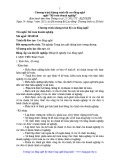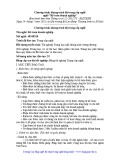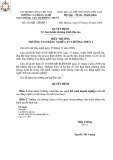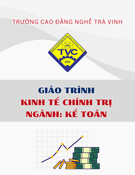
University of Arkansas, Fayetteville
ScholarWorks@UARK
Theses and Dissertations
8-2014
Essays in Pro-social Behavior
Joshua R. Foster
University of Arkansas, Fayetteville
Follow this and additional works at: http://scholarworks.uark.edu/etd
Part of the Behavioral Economics Commons
This Dissertation is brought to you for free and open access by ScholarWorks@UARK. It has been accepted for inclusion in Theses and Dissertations by
an authorized administrator of ScholarWorks@UARK. For more information, please contact scholar@uark.edu, ccmiddle@uark.edu.
Recommended Citation
Foster, Joshua R., "Essays in Pro-social Behavior" (2014). Theses and Dissertations. 2228.
http://scholarworks.uark.edu/etd/2228

Essays in Pro-social Behavior

Essays in Pro-social Behavior
A dissertation submitted in partial fulfillment
of the requirements for the degree of
Doctor of Philosophy in Economics
by
Joshua Foster
Bentley University
Bachelor of Science in Economics, 2009
August 2014
University of Arkansas
This dissertation is approved for recommendation to the Graduate Council.
Professor Cary Deck
Dissertation Director
Professor Amy Farmer Professor Jeffrey Carpenter
Committee Member Ex Officio Member
Professor Salar Jahedi
Committee Member

ABSTRACT
This dissertation examines individuals’ actions to improve social outcomes when unrecoverable
investments are necessary. Situations involving non-pecuniary and pecuniary investments are
considered. In the former, the prerequisite of real effort - a non-pecuniary, unrecoverable
investment - is examined when said effort determines an individual’s ability to procure their
preferred social outcome. Theoretical predictions over an individual’s effort provision are based
on their revealed preferences for the social distribution of wealth according to the general axiom
of revealed preference (GARP). Laboratory experiments reveal that individuals’ effort provisions
do not support the assumption of stable preferences (transitivity) of wealth distribution.
Specifically, individuals who reveal a preference for egalitarian outcomes do not exert enough
real effort toward said outcomes when all of the wealth can be distributed directly to them. In the
latter, pecuniary situation, auction formats that require all bidders to pay their bid (i.e., all-pay
auctions) are studied as a way of funding public goods, specifically in the context of charity
auctions. An innovative theoretical variation of the war of attrition is designed. This variation
requires bidders to make unrecoverable upfront investments in the auction in order to
participate, and the amount of one’s investment dictates how much one can potentially bid in the
auction. In addition, an empirical analysis of this theoretical variation is provided via laboratory
experiments. These experiments seek to highlight the bidder-specific and mechanism-specific
characteristics that may lead to greater success in charitable fund-raising. The results suggest
that auction mechanisms with an incremental bidding design outperform mechanisms with a
lump-sum bidding design.

ACKNOWLEDGMENTS
Foremost, I would like to express my deepest appreciation to my advisor, Cary Deck, who has
guided and supported me in establishing my academic career. I would also like to thank my
committee members, Amy Farmer, Jeffrey Carpenter and Salar Jahedi for the time they spent
assisting me improve this dissertation. This is the only part of my dissertation on which I could
not solicit their feedback, and I am confident that it has suffered as a result.
I would also like to thank the economics department and the Walton College, respectively. I will
forever be grateful for the eagerness from the economics faculty to assist in my academic
development, particularly that which I’ve received from Bill Curington, Andrea Civelli, Javier
Reyes, Fabio Mendez and Andy Horowitz. I would like to thank Susan Yell for her tremendous
administrative support and warm smile, both of which helped me through my final year.
Finally, I would like to thank my best friend, Shannon Lee Rawski, for her enduring love and
support - you are my constant.



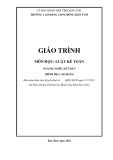

![Đề cương học phần Rèn nghề kế toán doanh nghiệp [Chuẩn nhất]](https://cdn.tailieu.vn/images/document/thumbnail/2023/20230522/levanthong1234/135x160/44_de_cuong_ren_nghe_ke_toan_dn_754.jpg)


